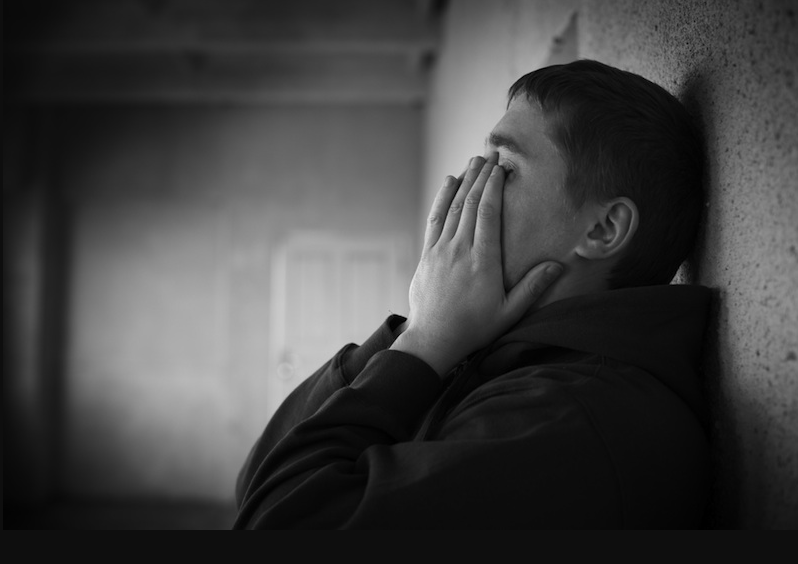 aNewDomain — Post-Harvey Weinstein, the pitchforks are out — and with good reason. Women and girls have been diminished, objectified, exploited, terrorized, discriminated against, sexually harassed forever.
aNewDomain — Post-Harvey Weinstein, the pitchforks are out — and with good reason. Women and girls have been diminished, objectified, exploited, terrorized, discriminated against, sexually harassed forever.
Only fools thought sexism and misogyny at the hands of male oppression had been eliminated, but many people had reason to assume things had improved post-Gloria Steinem in the 1970s, when “male chauvinist pig” became a sit-com meme. Weinstein and Bill O’Reilly et al. demonstrate that, at the apex of the power structure, nothing really changed.
And that’s the point of this column, which I was reluctant to write for fear of being accused of minimizing the righteous anger of the women stepping forward to say enough, no more. Rape culture — the insidious vapor that women wade through every day, whether it’s inappropriate sexist or sexual remarks, gauging whether it’s safe to take their boss up on an offer for drinks that could lead to a promotion, and/or an unwanted sexual advance, or hesitating to tell a wolf-whistling construction worker where he can stick it because he could break her face without breaking a sweat — does not afflict men to any significant extent.
Men feel fear walking down a city street at 1 a.m. in a bad neighborhood; women feel it all the time in every neighborhood.
Rape culture only afflicts women. But rape cuts across gender. One out of ten rape victims in the United States is male, according to RAINN (Rape, Abuse & Incest National Network).
This echoes what I was told as a member of a committee when I was a student. Barnard College, where I lived in a dorm, had recently established a rape crisis center with about 10 counselors. Someone brought up a surprising statistic. The campus security office reported that 10 percent of rape victims at Columbia University were male. (They didn’t say the sex of the attackers.)
When I suggested that the crisis center might want to consider hiring one counselor with expertise with male victims, however, the other committee members laughed — all of them except the other guy.
To the extent that society discusses this hidden 10 percent — or, if you believe the 2013 National Crime Victimization Survey by the Bureau of Justice Statistics, 38 percent! — the cliché is males raping males. Yet the BJS found that 46 percent of victims reported being raped by a woman.
No one can credibly minimize the devastating impact of sexual assault and harassment on the vast majority of victims, who are women. But, as inadequate as it is, there is awareness, and infrastructure, and sympathy for female rape victims.
Can you imagine, as a man, trying to file a report with the police that you’d been sexually assaulted by a woman?
Given male anatomy that requires an erection for penetration, how can a woman rape a man? Well, she can. Really. As with female rape victims, physical arousal in men can be stimulated involuntarily. Don’t forget the effects of drugs, alcohol and psychological manipulation.
What about men’s superior upper body strength? Men are stronger on average. But many individual women are stronger, and some individual men are weaker, than the average. Sometimes there are multiple attackers. It happened to me.
To most guys even, getting jumped by two women sounds like a “Dear Mr. Guccione, I never thought I’d be writing this letter” scenario. But not every dude wants it all the time, no guy wants it from every woman, and sometimes you’re just not feeling it with a woman whom you might find appealing under different circumstances.
Every “unwanted sexual advance” is unwanted until and unless it gets accepted; the trouble starts when the advancer refuses to take no for an answer, as happened in my situation, and it escalates when they get angry or vengeful.
Like most men, I was socially programmed, Robocop Directive 4-style, never to lay a hand on a woman. I was lucky; I barely managed to escape my attackers, pants dragging on the floor, without hitting anyone.
It was easy to imagine another outcome: succumbing to rape or, worse, being charged with assault for defending myself. This happens to women too, of course — but it’s harder for male victims to mount a credible legal defense.
Similarly, men also fall prey to harassment in the workplace. I have been fired from two jobs, each after I had refused my female boss’ sexual advances. They cited other pretexts, but I’m sure that I would have lasted longer had I put out.
Many of Harvey Weinstein’s victims tell stories of turning up for a meeting hopeful that a connection with a high-powered producer could score them a great role in a cool movie, only to find that the only thing he wanted was sex. For those who got out of his hotel room without him touching them, the experience was degrading and a waste of time.
I get it. One night in the 1980s, the car service that took me home late from my job at a New York bank asked if I’d share a vehicle because heavy rain had made taxi scarce. I was in my early 20s. My taxi companion, a woman in her 40s, informed me that she was a top bank official looking to hire a new officer and invited me to lunch to discuss my career. At lunch, however, she made an indecent proposal: she’d put me on salary to a job I’d never have to show up to as long as I became her live-in boy toy. She didn’t threaten or grab my bits. But she wasted my time and my self-esteem. Was my body all this high-powered executive saw of worth in me?
When I confide this story, reactions range from incredulity — you should have gone for it! — to derision. Sounds hot! Dismissal, men who have been there, will tell you, is typical. Former professional bicyclist Joe Papp told me he was “sexually harassed and then assaulted (groped, kissed against my will) by [an] inebriated female colleague. One other female colleague present. Reported it to ownership next day — they laughed.”
Pundits point to Weinstein and Hollywood’s male-dominated executive suites as central to the propagation of rape culture. “To solve the problem, Hollywood needs new executives and decision-makers: women,” Adam Epstein writes at Qwartz. “Nothing of substance will get done until there are more women bosses in every department, and at every level, of the film business.”
Gender equality is great — but it won’t eliminate sexual harassment and assault. According to one study, one-third of American men report being sexually harassed in their workplace during the last year.
As Roxane Gay wrote in The New York Times, “Sexual violence is about power. There is a sexual component, yes, but mostly it’s about someone exerting his or her will over another and deriving pleasure and satisfaction from that exertion.”
You could transform America into a matriarchy. It might be great. But it wouldn’t free us from rape or sexual harassment.
Only a revolution against inequality could do that.
For aNewDomain, I’m Ted Rall.
Cover image: BKNation.org, All Rights Reserved .













